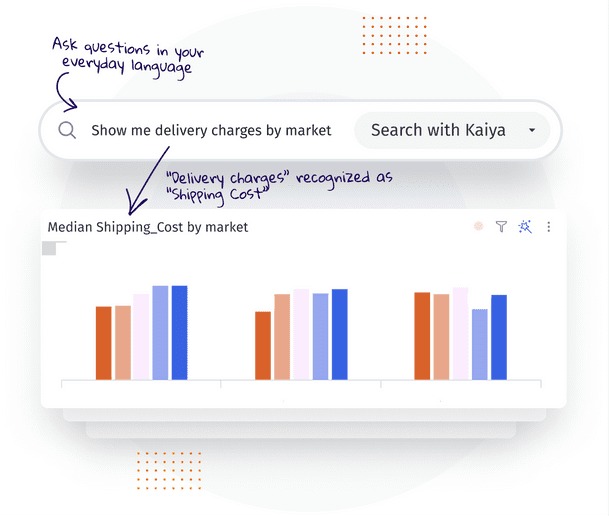GPT Analytics: Transforming Data Insights with AI-Powered Precision

Strong 8k brings an ultra-HD IPTV experience to your living room and your pocket.
As the demand for actionable insights continues to rise, businesses are increasingly looking for ways to make sense of vast, complex data. GPT Analytics, powered by Generative Pre-trained Transformer (GPT) models, is revolutionizing how organizations analyze, interpret, and use data. By leveraging the capabilities of GPT models, businesses can now generate insights, predictions, and even natural language explanations from data, allowing decision-makers to understand trends and make informed choices like never before.
What is GPT Analytics?
GPT Analytics harnesses the power of large language models, such as GPT, to bring a new level of sophistication to data analytics. Traditionally, data analysis requires skilled analysts to sift through data and use statistical tools to uncover insights. GPT Analytics, however, automates much of this process by using natural language processing (NLP) to interpret and respond to queries about the data. This approach can generate valuable insights, identify trends, and even produce detailed reports in natural language, making it easier for non-technical users to understand and utilize data.
For example, a business leader could ask, “What were the key drivers of revenue growth last quarter?” Instead of waiting for a detailed report from a data analyst, GPT Analytics could analyze the data in real-time and provide a clear, concise answer.
Benefits of GPT Analytics for Businesses
GPT Analytics offers a range of benefits that enhance data analysis and bring more value to business intelligence:
Enhanced Accessibility
One of the primary advantages of GPT Analytics is its accessibility. Unlike traditional analytics tools, GPT allows users to interact with data through natural language. This means that non-technical team members can ask questions and receive answers without needing to understand complex query languages. GPT Analytics opens the door for entire organizations, not just data teams, to leverage data-driven insights.
Real-Time Insights
GPT Analytics can generate insights from data in real time. Instead of spending hours or even days preparing a report, users can receive immediate answers to their questions, allowing faster decision-making and more agile responses to market changes.
Scalable Analysis
As data volumes continue to grow, businesses need scalable tools to process and interpret information. GPT Analytics can quickly analyze large datasets, drawing meaningful patterns and summarizing key findings efficiently. This scalability makes it a valuable tool for companies of all sizes, from startups to enterprises.
Enhanced Predictive Capabilities
Beyond analyzing historical data, GPT Analytics can help predict future trends by detecting patterns and anomalies. For example, it might highlight seasonal trends in customer behavior, helping marketing teams plan campaigns more effectively. This predictive power allows businesses to make proactive, data-driven decisions that support long-term growth.
Key Applications of GPT Analytics
The applications of GPT Analytics are extensive and continue to grow across industries:
Sales and Marketing: By analyzing customer behavior data, GPT Analytics can provide valuable insights into what drives sales, helping marketing teams optimize their strategies and improve ROI.
Customer Support: GPT Analytics can process and analyze support data to identify recurring issues, suggest solutions, and even generate responses for common customer inquiries, improving response times and customer satisfaction.
Human Resources: HR teams can leverage GPT Analytics to analyze employee data, detect trends in workforce productivity, and even predict factors that might contribute to employee retention.
Challenges and Considerations
While GPT Analytics offers tremendous value, there are a few challenges to address. One consideration is data privacy, as large-scale data analysis requires careful handling of sensitive information. Additionally, GPT models rely on quality data for reliable insights; biased or incomplete data may produce skewed results. Businesses must implement robust data governance practices to maximize the reliability and security of GPT-driven insights.
The Future of GPT Analytics
As GPT models continue to evolve, GPT Analytics will only grow more powerful and versatile. Future advancements are expected to include deeper predictive and prescriptive capabilities, as well as more sophisticated NLP that can interpret complex questions and deliver even richer insights. With these developments, GPT Analytics will further solidify its place as a vital tool in the business intelligence landscape.
GPT Analytics marks a transformative leap in how businesses access and interpret data. By providing real-time, accessible insights through natural language, GPT Analytics empowers organizations to make smarter, data-driven decisions that drive growth and competitiveness. For businesses ready to embrace the next generation of analytics, GPT-powered insights offer an unmatched opportunity to unlock the full potential of their data.
Note: IndiBlogHub features both user-submitted and editorial content. We do not verify third-party contributions. Read our Disclaimer and Privacy Policyfor details.


